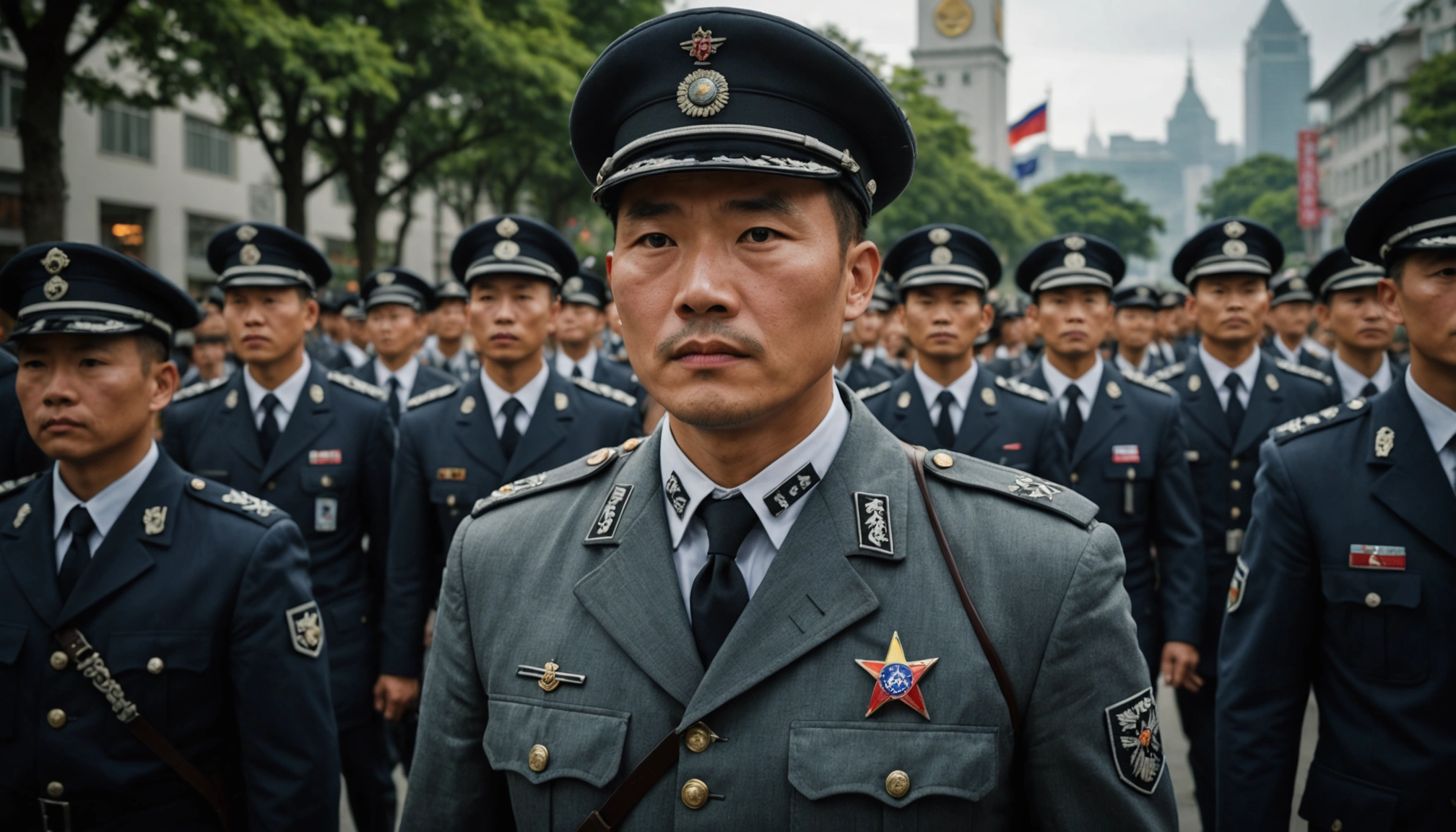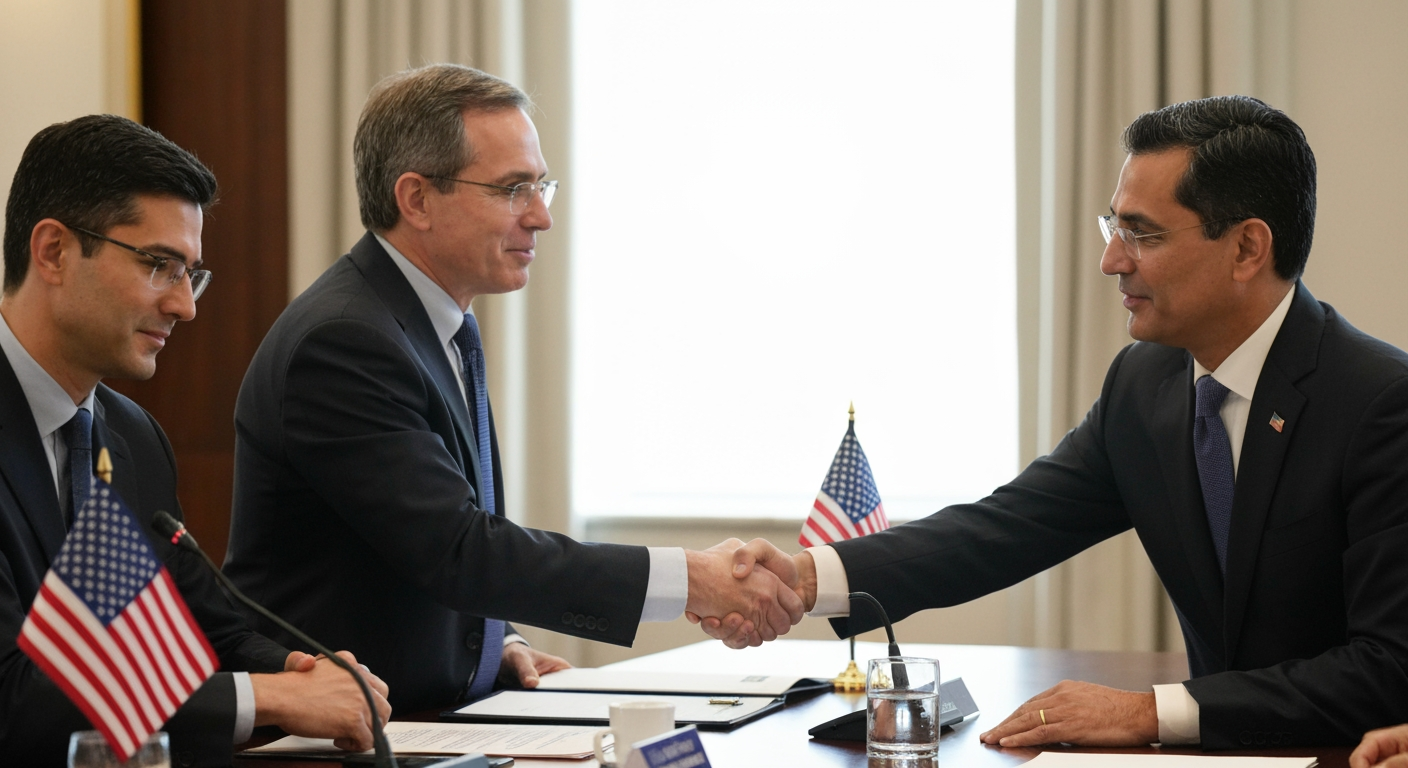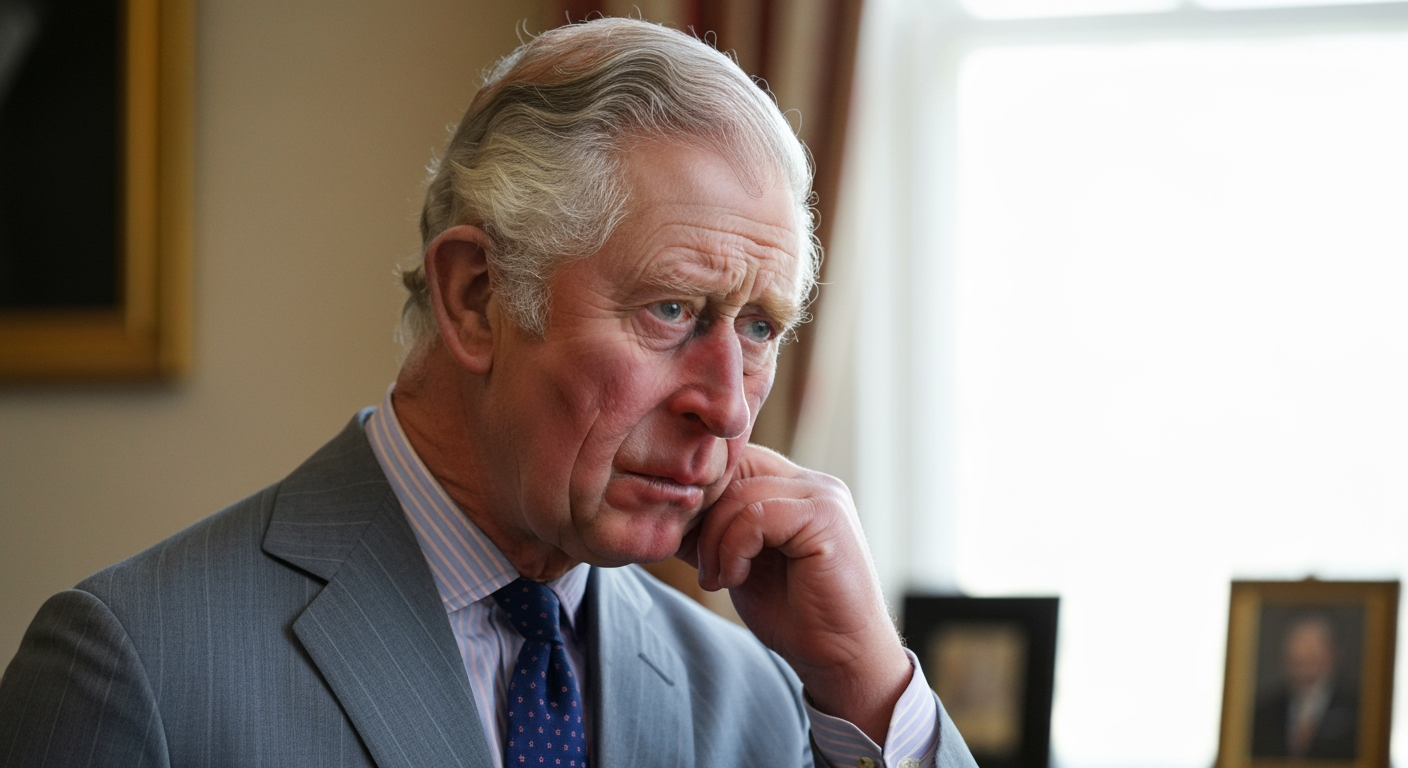Taiwan Activist's Nazi Display Sparks International Condemnation

TAIPEI – A political activist in Taiwan is facing widespread condemnation after brandishing Nazi symbols during a public appearance, drawing swift rebuke from German and Israeli representatives in Taiwan, as well as Taiwan's own Ministry of Foreign Affairs. The incident has ignited a debate about freedom of expression versus the responsibility of avoiding symbols of hate and historical trauma.
The controversy erupted Tuesday evening when Sung Chien-liang, a leader of a Kuomintang-backed campaign to recall a Democratic Progressive Party (DPP) lawmaker, arrived at the New Taipei District Prosecutors Office for questioning dressed in Nazi attire. Sung wore a swastika armband, carried a copy of Adolf Hitler's "Mein Kampf," and repeatedly gave a Nazi salute in front of reporters. He is suspected of involvement in signature fraud related to the recall vote campaign against DPP lawmaker Lee Kuen-cheng.
The German Institute Taipei, Germany's de facto embassy in Taiwan, issued a strong condemnation of Sung's actions. In a statement released Wednesday, the institute characterized Nazi ideology as embodying contempt for and persecution of humanity, highlighting the regime's systematic victimization of millions throughout Europe. German officials described the Holocaust as one of the ugliest crimes in human history.
Maya Yaron, head of the Israel Economic and Cultural Office in Taipei, echoed the German Institute's condemnation, stating that Nazi symbols "represent hate, racism, and extreme violence."
Taiwan's Ministry of Foreign Affairs (MOFA) also released a statement expressing concern and appealing directly to citizens. MOFA stated that Nazi-related symbols and flags are "detested and spurned by most countries, including Taiwan," noting that Nazi ideology and actions led to the "historical tragedies of mass murder and genocide." The ministry urged the public to avoid behaviors that might harm the feelings of people in other countries or tarnish Taiwan's carefully cultivated international image, particularly when such actions provide no meaningful expression of opinion.
While Taiwan is a democratic country with constitutionally protected freedom of expression, MOFA emphasized that Taiwanese people should understand the "historical pain represented by Nazi symbols and gestures." The ministry expressed hope that the people of Taiwan will work with the government to demonstrate empathy for different cultures, religions, and ethnic groups.
Sung was released on bail of NT$80,000 (US$2,463) over alleged recall vote campaign irregularities. He was seen leaving the building early Wednesday without the armband and concealing the book under his jacket. Sung did not explain his choice of attire.
This is not the first time that Nazi symbols have caused controversy in Taiwan. In 2016, a Nazi-themed parade at Kuang Fu High School sparked international outrage. Students dressed in Nazi uniforms, waved Nazi flags, and performed Nazi salutes during a school anniversary celebration. The incident led to apologies from the school principal and Taiwan's education minister, who emphasized the need to improve students' understanding of history and human rights.
In 2018, the German Institute Taipei and the Israel Economic and Cultural Office in Taipei jointly condemned the use of Nazi symbols by an association demanding the redemption of old German mark bonds during a demonstration in Taipei. The protesters held up banners with swastikas, claiming that Germany had failed to reimburse bonds sold to Taiwanese people by Japanese colonial authorities in the 1920s.
These incidents highlight a recurring issue in Taiwan: a lack of awareness about the historical significance and the deep offense caused by Nazi symbols. Some observers attribute this to gaps in historical education and a cultural distance from the events of World War II in Europe. Others point to a fascination with totalitarian aesthetics in some segments of popular culture.
Following the 2016 high school parade incident, Taiwan's president urged educators to reflect deeply on human rights and pass on those lessons to young people. A Holocaust memorial was held in Taipei in 2018 in hopes of raising awareness.
The recent incident involving Sung Chien-liang has reignited the debate about how Taiwan should balance freedom of expression with the need to be sensitive to the feelings of other cultures and to avoid symbols that represent hate and historical trauma. While some defend Sung's right to express himself, others argue that his actions were deeply offensive and harmful, particularly to victims of the Holocaust and their descendants.
The incident serves as a reminder of the importance of historical education and cross-cultural understanding. It also raises questions about the responsibility of political actors to avoid using symbols that could incite hatred or division. As Taiwan seeks to strengthen its international relationships, it must be mindful of the impact that such incidents can have on its image and its standing in the world.


